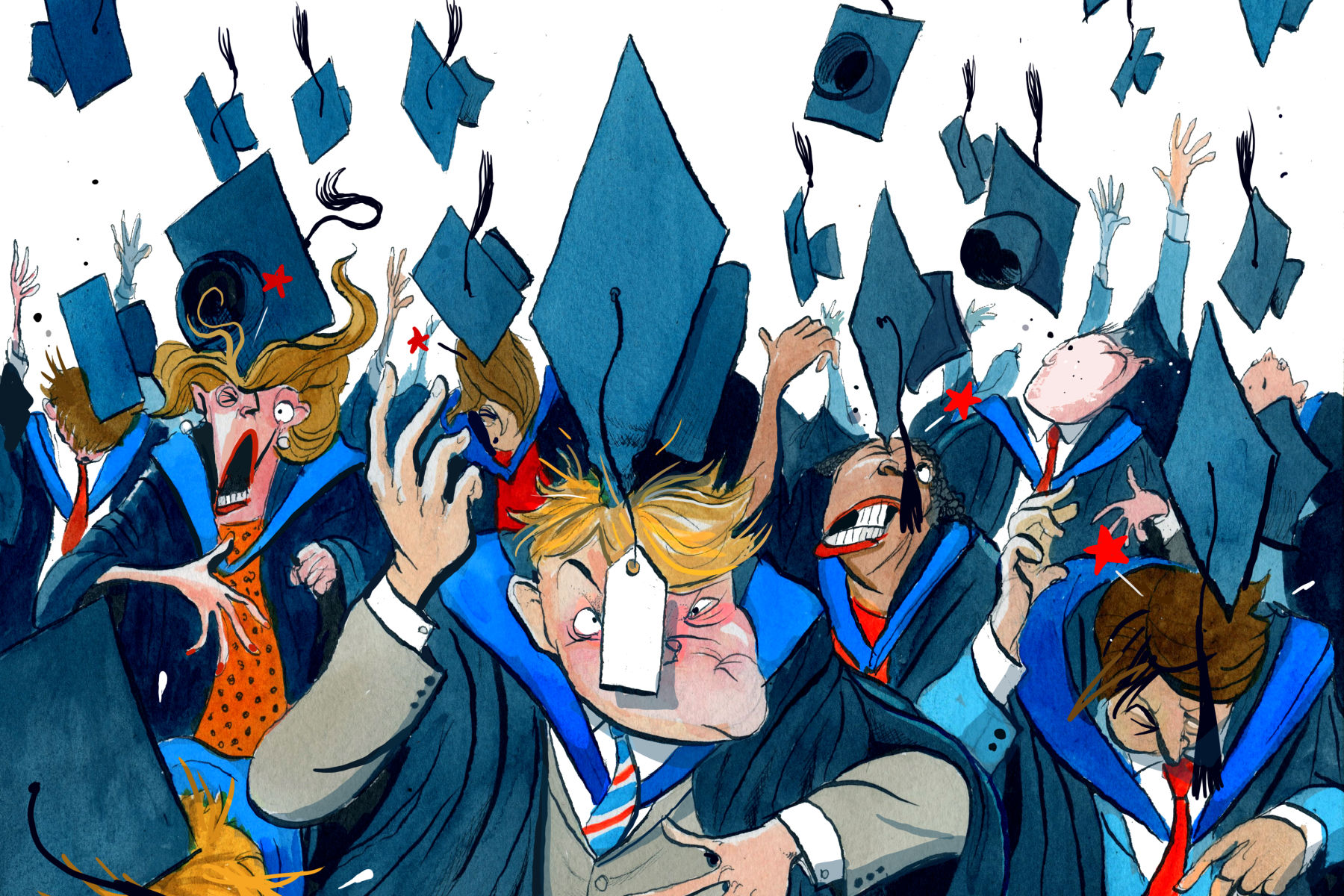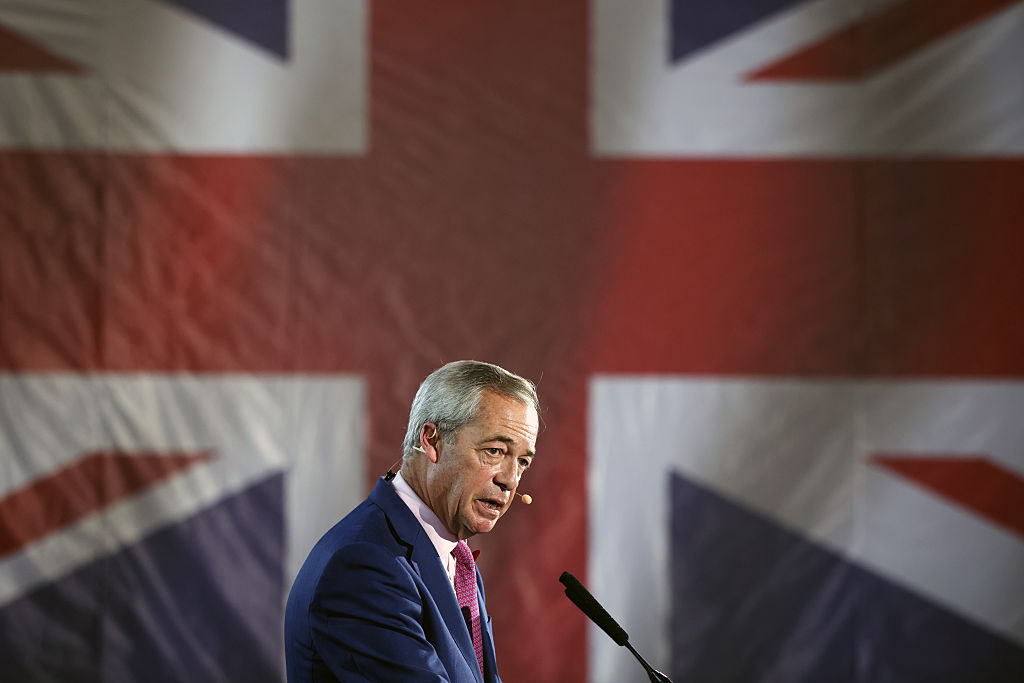In an extraordinary outburst, a government source has described the new Higher Education (Freedom of Speech) Act, introduced by the Conservatives, as a ‘hate-speech charter’. This is an outrageous distortion of the new laws that aim to guarantee free speech within universities. The best that can be said about that phrase is that, so long as we retain free speech, people are free to describe it that way. But doing so raises worrying doubts about what the new government thinks free speech means.
Universities have a special role in the promotion of free speech. They are, or should be, places where those teaching and those taught can try out ideas, some of which may on closer examination turn out to be misconceived. In a history department, half-finished ideas about, for instance, the role of profits from slavery in the Industrial Revolution may legitimately be put forward for open discussion; but they must not be imposed on those who differ. Challenging orthodoxy can lead to greater precision, so long as the challengers themselves are challenged to produce hard evidence.
Take the absurd, unsubstantiated statements made by participants in a seminar at Churchill College, Cambridge in 2021 about the very person after whom the college is named. The starting-point for denunciation of Winston Churchill was not hard factual evidence, but an ideological position that demanded that ‘the British Empire was far worse than the Nazis. It lasted far longer; it killed far many more people… the Nazis were copying large elements of the British Empire. And that’s just fact.’ Critical Race Theory, with its willingness to retell past facts as ‘my truth’ rather than ‘the truth’, has corrupted the teaching and research of one of the world’s greatest universities.
Once one could debate openly with Marxists and others with whom one disagreed, and engagement with opinions one did not hold was stimulating and worthwhile. Now, when speakers attempt to put forward views with which radical activists disagree, for instance on biological gender, they are shouted down by an angry mob banging on the doors; or, just as bad, opponents book most of the seats and then stage a walkout, depriving others who would have wished to attend of the opportunity to do so. Speakers are prevented from visiting universities by the authorities as well as by protesting students. Security is an issue, the hosts are told, and they will have to provide costly protection for the ambassador of an unpopular country (no prizes for guessing which one heads the list). Protestors occupy university premises in partly fake ‘encampments’ (often spending the night curled up in a comfortable college bed) that make other students feel not just uncomfortable but intimidated. Meanwhile the protestors show off their ignorance by not even knowing which river and which sea they are shouting about. Moreover, they commit serious acts of criminal damage for which, despite good evidence, no one is arrested.
This steep decline in the ability of universities to act as places of open debate, apolitical in character, where people do feel happy to say out loud that they supported Brexit or that they sympathise with Israel, has made ever more urgent the implementation of the Higher Education (Freedom of Speech) Act, signed into law last year by King Charles. In a manoeuvre that has astonished the more than 500 academics who signed a letter to the Secretary of State for Education, the government has ‘paused’ its implementation a matter of days before its provisions were to click into place. Unlike the letters about Gaza or just stopping oil, the signatories are real academics, many of them very senior, not post-docs and graduate students with little real clout.
Over the past year, under the leadership of the Director for Free Speech, Arif Ahmed, the DfE has produced an impressive set of guidelines offering thirty examples of what is expected of universities, and where appropriate of student unions. Its starting-point is a crystal-clear statement: ‘Everyone has the right to freedom of expression. This right shall include freedom to hold opinions and to receive and impart information and ideas without interference by public authority and regardless of frontiers.’ The guidelines consider complaints about interference with events on campus; complaints of being forced into line, for instance a block on academics being promoted unless one has submitted what is regarded as an acceptable 500-word statement on Equality, Diversity and Inclusion; and anonymous online denunciations of lecturers who express views with which students disagree.
Now the DfE has, in a move of dubious legitimacy, decided not to put the act into effect. Bizarrely, the DfE is supported by the Union of Jewish Students and the Board of Deputies of British Jews. It is asserted that the Act would somehow unleash a torrent of antisemitic abuse, even Holocaust denial, on campus. This is a total misunderstanding of what is permissible. Under the Equality Act of 2010 and other legislation speech conducive to hatred and violence is unlawful. Expressing support for Hamas is unlawful. The expression of Neo-Nazi views is unlawful. And the torrent has already been unleashed in demonstrations that have included calls for the extirpation of the State of Israel. The Act would not and should not prevent people from arguing publicly in support of the Palestinians, for instance condemning the Jewish settlers on the West Bank in strong terms. But it would also ensure that events supportive of Israel and the trauma it suffered last October can go ahead with security paid for by the relevant university. It provides mechanisms by which no-cost complaints can be made if these conditions are not fulfilled, and enables sanctions to be imposed on universities or student unions that have failed to comply with the act. In short, the Act would greatly improve a situation for Jewish students which has turned from difficult to atrocious since 7 October.
As for the DfE, this anti-free speech move is from the same government department that proposes children as young as five should be taught ‘critical thinking’. The cascade of disastrous, unthought-out, decisions emanating from the DfE in the last six weeks has shown all too clearly how the application of crude ideology is a source of danger to all of us.









Comments